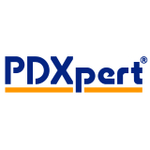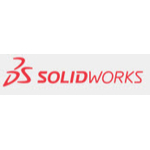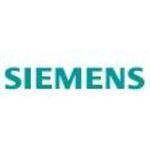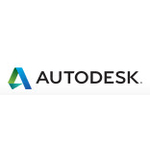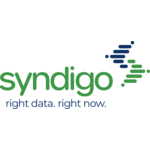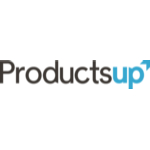TechnologyCounter provides genuine, unbiased real user reviews to help buyers make informed decisions. We may earn a referral fee when you purchase through our links, at no extra cost to you.
List of 15 Best Product Data Management Software
Showing 1 - 15 of 20 productsMasterControl is a software solution designed to streamline and enhance quality management processes. With its user-friendly interface features, MasterControl empowers businesses to achieve greater efficiency, compliance, and overall success. Whether...Read MasterControl Reviews
PDXpert PLM is a and innovative software solution designed to streamline and simplify product lifecycle management for businesses of all sizes. With user-friendly features technology, PDXpert PLM is the go-to choice for enhancing productivity and eff...Read PDXpert PLM Reviews
aPriori is a future of manufacturing cost management. This innovative software revolutionizes the way companies estimate and control production costs, ensuring maximum profitability and efficiency. Say goodbye to manual processes and hello to accurat...Read aPriori Reviews
SolidWorks is a 3D CAD software that provides innovative solutions for designers, engineers, and manufacturers. With its user-friendly interface features, SolidWorks allows users to create, simulate, and visualize their designs with precision and eff...Read SolidWorks Reviews
Teamcenter is a leading software solution designed to revolutionize the way businesses manage their product lifecycle. It offers robust tools and capabilities to streamline product data management, collaboration, and process automation. With its intu...Read Teamcenter Reviews
ANTEROS is an innovative software designed to revolutionize the way you manage your business. Its user-friendly interface features make it the ultimate tool for streamlining operations and increasing productivity. Say goodbye to complicated and outda...Read ANTEROS Reviews
Autodesk is a leading software company that has been revolutionizing the world of design and engineering for over 35 years. Known for its innovative solutions, Autodesk offers a wide range of powerful tools and services that empower professionals to...Read Autodesk Reviews
Syndigo is a leading software company that offers innovative solutions to help businesses effectively manage and distribute product information. With a focus on accuracy and efficiency, Syndigo empowers companies to succeed in an ever-changing retail...Read Syndigo Reviews
Shoptimised is a solution for maximizing your online sales. With its innovative features and user-friendly interface, Shoptimised revolutionizes the way you optimize your e-commerce business. Say goodbye to the hassle of manual product optimization a...Read Shoptimised Reviews
Aras PLM is a product lifecycle management software that streamlines and optimizes business processes for increased efficiency and productivity. With its dynamic and user-friendly interface, Aras PLM revolutionizes the way organizations manage their...Read Aras PLM Reviews
Productsup is your ultimate solution for product data management. With its powerful and user-friendly software, you can easily optimize, manage, and distribute your product information across various online channels. Say goodbye to tedious tasks and...Read Productsup Reviews
AppsTec DMS, a powerful document management system designed to revolutionize the way businesses handle their digital assets. With its user-friendly interface features, AppsTec DMS streamlines the process of organizing, storing, and sharing documents,...Read AppsTec DMS Reviews
Vin Lister is a highly skilled copy writer with a passion for creativity and crafting compelling content. With a proven track record of success, Vin has helped numerous businesses elevate their brands and drive results through powerful words. His app...Read Vin Lister Reviews
Delogue PLM is a software solution designed to streamline and optimize product lifecycle management for businesses in fashion, apparel, and lifestyle industries. With its intuitive interface features, Delogue PLM empowers companies to effectively man...Read Delogue PLM Reviews
Knyo is a software designed to revolutionize the way you work! With its advanced features and user-friendly interface, Knyo streamlines your tasks and boosts productivity. Say goodbye to tedious processes and hello to simplicity and efficiency with K...Read Knyo Reviews
- What Is Product Data Management (PDM) Software?
- Top Reasons Why Businesses Need Product Data Management Software?
- What Are the Top Key Features of Product Data Management Software?
- What Are the Top Benefits of Product Data Management (PDM) Software?
- What Are the Steps to Choose the Right Product Data Management Software?
- What Are the Types of Product Data Management Software for Different Industries?
- What Are the Technology Trends for Best Product Data Management (PDM) Software?
- What Are the Deployment Options for Product Data Management Software?
What Is Product Data Management (PDM) Software?
Product data management (PDM) software refers to a comprehensive system employed for the purpose of effectively organizing, managing, and securely storing data pertaining to products.
This system facilitates the comprehensive management of information pertaining to a company's products, encompassing the entire lifecycle from ideation and design to manufacturing and commercialization.
The provided information include technical data, such as Computer-Aided Design (CAD) drawings, component specifications, design and development-related documentation, bills of materials, and product catalogues.
The utilization of PDM product data management software enables companies to effectively manage and regulate their whole product data within a unified database. This aids in promoting collaboration, expediting the procedures linked to product development and launch, and guaranteeing precision and adherence across the entire product lifetime.
In summary, PDM software facilitates efficient and precise organization and retrieval of product-related information within a corporate context.
Top Reasons Why Businesses Need Product Data Management Software?
1. Improved accuracy of product information across multiple sales channels: The best product data management software facilitates the maintenance of precise and uniform product information across many sales channels, hence supporting consumer interaction and buy deliberations.
2. Streamlined processes for creating, updating, and managing product information: PDM product data management software streamlines many processes, including the generation, modification, and authorization of fresh product data, resulting in enhanced efficiency and resource optimization for organizations.
3. Reduced costs associated with manual data entry/management: Businesses can achieve cost savings by implementing automation in their product data entry and administration operations, hence reducing the need for manual labor and associated expenses.
4. Easier compliance with data regulations: The implementation of automated product data management systems enables organizations to effectively comply with industry rules and uphold data protection standards.
5. Improved inventory management: Product data management systems plays a crucial role in maintaining accurate and current product inventories, while also providing firms with the ability to promptly monitor and modify stock levels.
6. Increased online visibility: Through the process of refining product information, businesses have the ability to enhance their exposure on search engines and expand their reach to a larger pool of potential buyers.
7. Easier product tracking across sales channels: PDM software facilitates the consolidation of product data from many sales channels, thereby streamlining the process of tracking products and enabling organizations to find potential areas of enhancement.
8. Better decision-making: The utilization of automated systems for accessing product data diminishes reliance on speculation and empowers firms to make well-informed judgments based on factual and data-driven insights.
9. Improved customer experience: By furnishing precise and reliable details about their products, enterprises can effectively guarantee client satisfaction in relation to their purchasing choices.
10. Enhanced product catalogs: PDM software offers firms a consolidated repository of product information, enabling them to efficiently generate compelling product catalogs.
11. Easier integration with ERP systems: The utilization of automated product data management facilitates seamless integration with enterprise resource planning (ERP) systems, as well as various third-party applications.
12. Up-to-date product information for online shoppers: Businesses may ensure that buyers find the necessary information while shopping online by consistently updating product information and improving fields, such as meta tags.
13. Personalized product experiences: The utilization of product data enables the creation of customized product experiences for clients, encompassing individualized product recommendations and exclusive discounts.
14. Improved safety and liability: Automated product data management systems play a crucial role in ensuring that products adhere to safety and liability standards, hence mitigating the potential risks associated with damage or financial loss.
15. Advanced analytics: Through the collection and analysis of data obtained via product data management tools, organizations have the opportunity to acquire useful insights pertaining to their products, customers, and operational processes.
What Are the Top Key Features of Product Data Management Software?
The top key features of product data management software include the following:
1. Product Information Management: ePDM software facilitates the management of various product details, encompassing attributes, descriptions, pricing information, photos, and other relevant data.
2. Version Control: The implementation of a version tracking and control system for product data facilitates efficient error identification and resolution.
3. Supply Chain Integration: Enhance the efficiency of the product data workflow through the integration of suppliers, retailers, and manufacturers.
4. Digital Asset Management: This project aims to provide a system for the creation, storage, and dissemination of digital marketing materials pertaining to product data.
5. Automation: The automation of manual operations is a valuable strategy for enhancing efficiency and precision.
6. Validation: The process of validating product data against specific rules is crucial in order to ascertain its accuracy.
7. Reporting: Produce detailed reports for the purpose of monitoring and evaluating performance.
8. Audit Trails: Effortlessly monitor the chronological evolution of your product data.
What Are the Top Benefits of Product Data Management (PDM) Software?
1. Improved product data accuracy - Product data management (PDM) software has the potential to assist enterprises in mitigating data entry errors, streamlining intricate data-related processes, and facilitating the seamless integration of data from diverse origins.
2. Streamlined compliance - The utilization of product data management tools can effectively contribute to the maintenance of consistent documentation and adherence to the requirements stipulated by regulatory bodies and industry norms.
3. Faster product launches - Product data management systems enables teams to efficiently incorporate and revise product information, hence diminishing the duration required to introduce new items and services to the market.
4. Increased visibility - The best product data management software has the potential to enhance users' ability to oversee their product range by offering improved tools for effectively handling substantial quantities of product data.
5. Increased customer satisfaction - By maintaining a constant availability of precise product information, one can guarantee that clients are equipped with the necessary knowledge to make well-informed purchasing choices and encounter reduced levels of irritation.
6. Improved supply chain coordination - Product data management systems enables firms to enhance the coordination of supply chain activities, resulting in increased efficiency and cost reduction.
7. Automated forecasting - PDM product data management software has the capability to generate predictions and suggestions on product sales through the utilization of insights obtained from data analysis.
8. Enhanced customer data analysis - Product data management tools enables users to gain comprehensive access to all data pertaining to a particular product or service. This facilitates a deeper comprehension of customer interactions with these items and reveals potential areas for enhancement.
What Are the Steps to Choose the Right Product Data Management Software?
1. Identify your organization's objectives: Prior to choosing the best product data management tools, it is imperative to have a clear understanding of the objectives of your firm. The task at hand involves ascertaining the manner in which the program can facilitate the accomplishment of the company's objectives.
2. Assess current data needs: Conduct an assessment of the many categories of data that are presently under the management of your firm, as well as the origins of these data from different sources. This will aid in ascertaining the requisite features and functionalities that the software must include.
3. Identify additional features required: Assess the present data requirements in relation to the intended functionality of the epdm software. Identify the characteristics that would yield advantageous outcomes for your firm, so guaranteeing effective data administration.
4. Research software solutions: Conduct a comprehensive investigation into alternative software solutions that align with the specified criteria. It is advisable to engage in a comprehensive process of reviewing customer feedback, carefully assessing product specifications, and reaching out to provided references for a more thorough evaluation.
5. Determine the cost: Calculate the expenses related to the acquisition of the PDM software as well as the costs associated with its implementation and management. Moreover, it is crucial to consider the long-term expenses associated with maintenance and any future modifications.
6. Choose the right product data management systems: After conducting a comprehensive evaluation of all relevant criteria, it is advisable to select an appropriate software solution that aligns with your specific requirements and afterwards proceed with its implementation.
What Are the Types of Product Data Management Software for Different Industries?
Product data management systems can be categorized into three primary classifications: Enterprise Resource Planning (ERP) software, Supply Chain Management (SCM) software, and Customer Relationship Management (CRM) software.
1. Enterprise Resource Planning (ERP) software: It is employed for the purpose of effectively overseeing and coordinating various corporate processes, encompassing a wide range of functions such as accounting, financial services, inventory management, and customer service.
Enterprise Resource Planning (ERP) software is commonly employed by organizations operating in diverse sectors such as manufacturing, professional services, retail, healthcare, and education.
2. Supply chain management (SCM) software: It is employed for the purpose of strategically coordinating and enhancing the processes involved in the transportation and warehousing of goods, encompassing the effective management of suppliers, producers, and consumers.
Supply chain management (SCM) software is commonly employed throughout various sectors, including the automotive, retail, food services, and construction industries.
3. Customer Relationship Management (CRM) software: It is employed to establish and nurture connections with customers. The utilization of this tool aids organizations in effectively handling client concerns, comprehending customer behavior patterns, and ultimately enhancing overall customer satisfaction levels.
Customer Relationship Management (CRM) software is widely utilized in various sectors, including the banking and finance industry, retail industry, marketing industry, and medical industry.
What Are the Technology Trends for Best Product Data Management (PDM) Software?
Product data management (PDM) software holds significant value for enterprises, as epdm software enables effective management and governance of product information, hence ensuring consistency and precision across many channels and platforms.
The current technology advances in the realm of product data management software encompass several advancements, such as enhanced data collecting methodologies, streamlined approaches to product data administration, and greater capabilities for product customisation.
The significance of enhancing data collection methods has grown in tandem with the escalating volume of data saved across diverse formats and locations. The utilization of PDM software enables firms to effectively gather data from many sources and formats, afterwards consolidating it into a unified system.
This might potentially mitigate errors in data management and optimize organizational efficiency by conserving time and resources. The optimization of product data management is an additional significant development in the realm of PDM software.
This facilitates the enhancement of operational effectiveness in product information management, since the entirety of the data is consolidated inside a centralized repository, hence enabling streamlined accessibility from a singular source.
Product data management systems automation capabilities have the additional benefit of diminishing the need for manual data entry, hence resulting in time and resource savings. Enhanced product customization emerges as a prominent trend within the realm of product data management software.
This functionality allows enterprises to customize product information in order to cater to the specific requirements of each consumer, resulting in enhanced quality and customer satisfaction.
What Are the Deployment Options for Product Data Management Software?
The available deployment methods for the best product data management software are contingent upon the specific capabilities and functionalities of the product.
PDM Product data management software is frequently implemented using three distinct methods: On-Premise, hosted/cloud-based, and mobile.
1. On-Premise deployment refers to the hosting of software on an organization's internal hardware infrastructure, granting the organization complete authority over access, utilization, and supplementary configurations.
The present iteration of product data management software generally necessitates the highest degree of upkeep.
2. The term "hosted/cloud-based" pertains to software that is deployed on a server located in the cloud, offering advantages such as enhanced flexibility, cost-effectiveness, and expedited setup procedures.
3. The term "mobile deployment" pertains to the distribution of software in the form of a mobile application designed for use on a portable electronic device. The present iteration of the best product data management software has a restricted range of features and capability.

